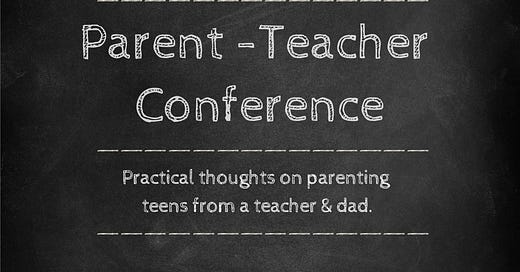Addressing conflict and problems directly with teachers or administrators (Part 4)
Sometimes we have to get involved. Proceeding with care and prudence will maximize the chances of getting a productive outcome. It's not hard, but it takes thought and care.
I have spent the last several posts talking about building relationships with teachers and schools in order to preempt problems—or at least to have a working relationship before they emerge—here.
I also talked about how seemingly arbitrary policies might not necessarily be bad, even if they are frustrating, and the importance of keeping disagreements in…



